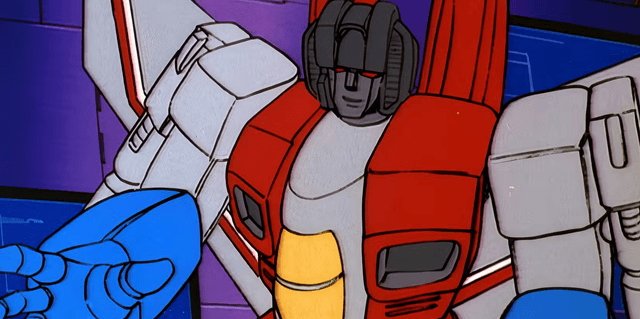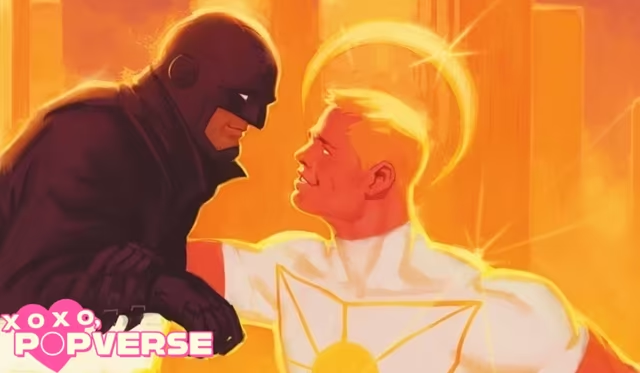If you click on a link and make a purchase we may receive a small commission. Read our editorial policy.
James Acaster reaches a new level of maturity in Hecklers Welcome
Acaster has found a way to combine his trademark silliness with stories of his emotional growth - and make it funny

Popverse's top stories
- Every Star Wars trilogy is really a bad romantasy story and you'll never convince me otherwise
- Midnighter and Apollo from DC Comics proved that fighting a tyrant together is incredibly romantic
- Members only: Ask Ming-Na Wen, Critical Role, Gail Simone, Karl Urban, Chris Claremont, Denys Cowan, and more your questions as part of ECCC x Popverse member exclusive!
At the beginning of Hecklers Welcome, the disembodied voice of James Acaster sets up some rules. Hecklers are allowed to heckle, and Acaster (barring any serious issues from the hecklers) is not allowed to kick them out of the theater. They're the kind of rules that feel like they come with a precedent, and as the show goes on, you learn about that precedent.
Though no one really ended up heckling his show this past Saturday at The United Theater on Broadway, the subject of hecklers and how they (and a host of other kind of audience reactions, including from children) get under Acaster's skin is everpresent in the set. Hecklers Welcome bobs and weaves through Acaster's history to figure out why Acaster has reacted so strongly to hecklers in the past and what he can do about it.
It's no secret that James Acaster is funny. Anyone who has seen him do his banana bit gets that. He's also, like many comedians, facing a serious moment of confronting himself about what his career is and whether or not its healthy for him, as we saw in his last special Cold Lasagne Hate Myself 1999.
Now, Acaster's new show combines the two parts of Acaster that have become familiar, addressing trauma in a way that suggests he's working through it instead of experiencing it, and layering it with the fun bits we expect from him (as well as some well-timed breaks with Acaster banging out a beat on a tiny drumset or whacking a small tether ball with paddles). Hecklers Welcome, in its title and its subject, is a full on confrontation of what worries Acaster, the childhood that follows him (and all of us), and the weird relationship between performer and audience.
As more comedians begin to lean into the "serious" comedy show, a la Hannah Gadbsy's Nanette and Bo Burnham's Inside, there seems to be a trend to write these shows off as "not quite standup." But this is not the kind of show you're going to want to write off. It's hilarious, for one, but it also uses that humor to get to the personal. By the end of the show, you get the sense of what it has taken for Acaster to get where he is, both on the stage and emotionally, and start to think, too, about how we as individual audience members have gotten to where we are.
Of course there are classic Acaster bits - ones that will likely be quoted along the aforementioned banana bit and his British Museum bit. But what marks Hecklers Welcome as different is a level of self understanding and acceptance that allows Acaster to go where it hurts, but also contextualize it, all the while making the audience laugh harder than they have in weeks.
Want to know what's coming up next in pop culture? Check out Popverse's guides to:
Follow Popverse for upcoming event coverage and news
Find out how we conduct our review by reading our review policy
Let Popverse be your tour guide through the wilderness of pop culture
Sign in and let us help you find your new favorite thing.
















Comments
Want to join the discussion? Please activate your account first.
Visit Reedpop ID if you need to resend the confirmation email.